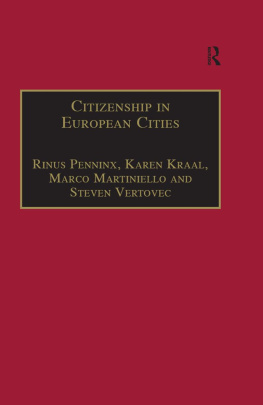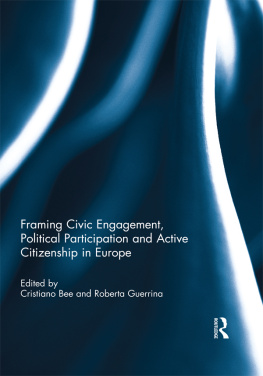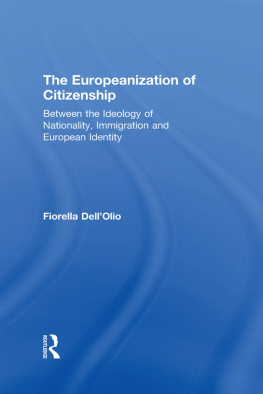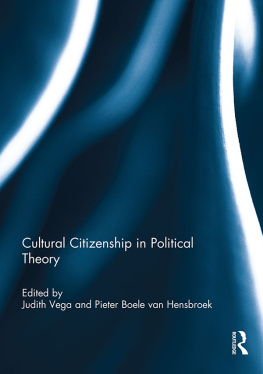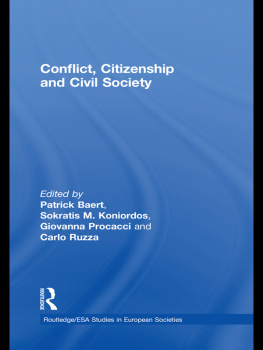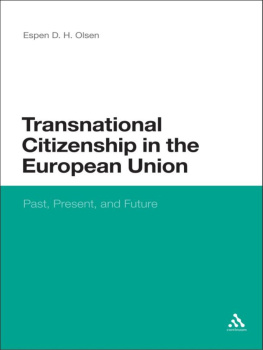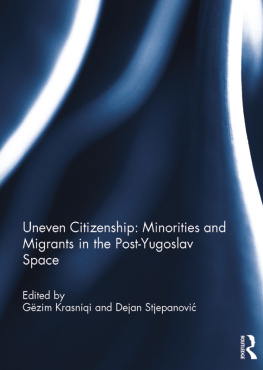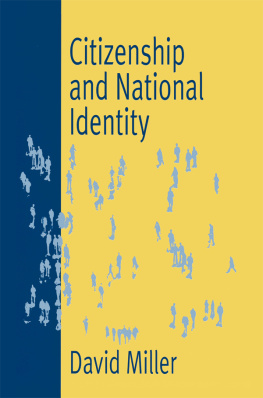
First published 1998 by Ashgate Publishing
Reissued 2018 by Routledge
2 Park Square, Milton Park, Abingdon, Oxon, OX14 4RN
711 Third Avenue, New York, NY 10017
Routledge is an imprint of the Taylor & Francis Group, an informa business
Copyright Nicola Piper 1998
All rights reserved. No part of this book may be reprinted or reproduced or utilised in any form or by any electronic, mechanical, or other means, now known or hereafter invented, including photocopying and recording, or in any information storage or retrieval system, without permission in writing from the publishers.
Notice:
Product or corporate names may be trademarks or registered trademarks, and are used only for identification and explanation without intent to infringe.
Publisher's Note
The publisher has gone to great lengths to ensure the quality of this reprint but points out that some imperfections in the original copies may be apparent.
Disclaimer
The publisher has made every effort to trace copyright holders and welcomes correspondence from those they have been unable to contact.
A Library of Congress record exists under LC control number: 98070151
ISBN 13: 978-1-138-32701-6 (hbk)
ISBN 13: 978-1-138-32704-7 (pbk)
ISBN 13: 978-0-429-44950-5 (ebk)
This monograph is a revised version of my D.Phil. thesis at the University of Sheffield, Department of Sociological Studies, completed in May 1996.
There are many people and institutions without whose assistance the outcome of this research would have been less satisfactory, if not impossible. First of all, I owe a special debt to my parents for introducing me to the 'world of books' by encouraging my early interest in the written word and teaching me how to read and write. Their support throughout the long years of my education was invaluable.
I also wish to thank my supervisor Simon Holdaway, without whose interest and guidance I would never have started this research. Crucial to the progress of the project was the involvement of senior members of staff of a number of selected NGOs and semi-governmental organizations, either in form of interviews or the provision of materials. I am very grateful for their time and generosity. I am also indebted to a number of friends and colleagues in the Sociology Department who kindly read through some of the earlier drafts. I have particularly benefited from the encouragement and suggestions put forward by Nick Stevenson, Maurice Roche and Alan France. Many thanks to my friends Barbara and Mel who did a great job helping me with the tedious task of 'tidying up' my English. Paul White and Chris Husbands, who kindly served as examiners of my thesis, provived me with many useful comments, however, I was not able to incoporate all of them into this book.
In preparing for a final manuscript for this book, I greatly benefited from the congenial atmosphere of the School of East Asian Studies at Sheffield, with special encouragement and support from Michael Weiner and Ian Gow. Also many thanks to Catherine Brown who kindly edited the manuscript.
I also want to stress that this work was only made possible thanks to the benevolent financial support by the ESRC and the University of Sheffield. The Department of Sociological Studies, Sheffield, was very helpful in financing my research trip to Germany and trips to London.
Last but not least, I would like to express gratitude, affection and appreciation to my partner Kevin who has shared the ups and downs of the long process of completing this research.
BNA | British Nationality Act |
BNP | British National Party |
BSA | British Social Attitudes |
CDU | Christian Democratic Union |
EC | European Community |
ECSC | European Coal and Steel Community |
EEC | European Economic Community |
EFTA | European Free Trade Association |
EP | European Parliament |
EU | European Union |
EURATOM | European Atomic Energy Community |
FDP | Liberal Democratic Party |
FRG | Federal Republic of Germany |
GDR | German Democratic Republic |
IGC | Intergovernmental conference (due in July 1997) |
IPOS | Institut fr praxis-orientierte Sozialforschung |
OECD | Organization for Economic Cooperation and Development |
OJ | Official Journal of the European Communities |
PDS | Democratic Socialist Party |
SEA | Single European Act |
SED | United Socialist Party of Germany (informer GDR) |
SPD | German Social Democrat Party |
TREVI | Terrorism, radicalism, extremism and violence (group of EC member-states' interior ministers) |
UK | United Kingdom |
1.1.1 Background
Virtually every advanced industrialized country has experienced international labour migration in the form of legally admitted foreign workers, undocumented aliens, political refugees or permanent immigrants. There are an estimated thirty million foreign workers and unauthorized aliens in all parts of the world, with an additional fifteen million political refugees (Castles 1993:18). The movement of people across national borders has undoubtedly become a global issue and will likely become an even more salient one in the future as the economic inequalities and the global knowledge about the existence of these inequalities increase.
Of the world's approximately thirty million foreign workers and undocumented aliens, almost half are to be found in western Europe. These migrants originally came during the post-war period as workers to meet the growing demand for labour. Despite a general tendency in Europe towards restrictive immigration policies in the early 1970s, intensified family reunification as well as 'family formation' (Menski 1994) have resulted in a continuous or even higher proportion of immigrants, and meanwhile the permanent settlement of some fifteen million foreigners in western European countries has become the new reality (Layton-Henry 1990). Among European Community member-states, Germany has the highest number of foreign residents with currently around seven million. The largest group in 1991 was the Turks (1.9 million) (OECD 1995). Germany is followed by France with a foreign population of 3.6 million (Castles 1995:298) and Britain where the number of foreign citizens was two million in 1990 (OECD 1995). In the latter case, however, when British-born persons of Afro-Caribbean and Asian origin are included, the overall population of immigrant origin is estimated at 4.5 million (Castles 1995: 300).


